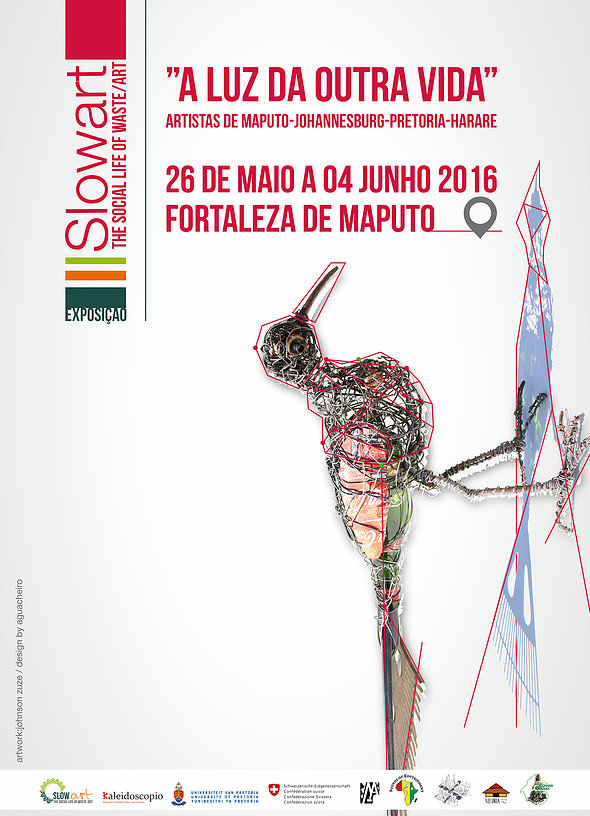
The Triangular Co-operation Programme for Agricultural Development of the Tropical Savannah in Mozambique (ProSAVANA), generates controversy. At the centre of the debate is the fear that large scale commercial agriculture might produce in Mozambique, similar adverse effects on peasant agriculture as those reported to have resulted from Brazil’s Cerrado Development programme (PRODECER).
In an article co-written with Alex Shankland from the Institute of Development Studies at the University of Sussex, Kaleidoscopio’s anthropologist Euclides Gonçalves analyses the subject. Shankland and Gonçalves argue that the imaginaries mobilized for the conception and to challenge ProSAVANA accelerate the reconfiguration of national and transnational networks of farmers and activists working on the issue of land.
The article entitled “Imagining Agricultural Development in South-South Cooperation: The Contestation and Transformation of ProSAVANA” is part of the World Development journal issue on China and Brazil in the African Agriculture published in May 2016.
Archaeologist Albino Jopela’s chapter “Community custodianship and conservation of Chinhamapere rock art site in Central Mozambique“, is included in the edited volume La vitalidad de las voces indígenas: arte rupestre del contacto y en sociedades colonials published in October 2015 by the Instituto de Investigações Estéticas da Universidade Nacional Autónoma do México.
Jopela’s contribution discusses the preservation of rock art sites based on approaches that focus on the traditional management of Cultural Heritage. He argues that the fact that some areas where rock art can be found in Mozambique are also places where local population worship the ancestors shows the relevance of heritage management approaches based on local practices.
Demographer Sandra Gonçalves contributed in 2015 with a chapter on the “Demographic and socioeconomic profile of adolescents and youth in Mozambique” for the book on Adolescents and Youth: A demographic and health perspective published by the Center for Research on Population and Health (CEPSA).
In the chapter, Gonçalves establishes the profile of adolescents and youth aged from 10 to 35 years in Mozambique through an analysis of tables, 10% sample of the 1997 and 2007 Census, and analysis of data from national surveys: 1997 DHS, 2003 DHS, 2011 DHS, 2008 MICS and 2009 AIS.
The analysis shows, among other results, that adolescents and youth make up almost half (46.1%) of the Mozambican population; and that at least 1 in 10 young people aged 15 to 35 years is HIV-positive in seven of the 11 provinces of Mozambique.

Conflictual relations between Frelimo, the ruling party in Mozambique, and local elites undermine the implementation of various conservation strategies of the Island of Mozambique. Frelimo’s elite conception of the Island as “cradle of colonialism” is one of the reasons for the conflict. Over the years, this view has created conflictual relations between Frelimo and local elites often manifested in central government’s ambivalent positions and “foot dragging” on issues regarding the conservation and management of the Island. As a result of this scenario, the management and conservation of that Heritage Site depends largely on international donors.
This position is presented in a chapter entitled “Conserving a World Heritage Site in Mozambique: Entanglements between politics, poverty, development and governance on the Island of Mozambique” published by archaeologist Albino Jopela,included in Urban Heritage, Development and Sustainability: International frameworks, national and Local governance, a book published by Routledge in 2015.
Reducing the distance between planners and road users is crucial to the effective delivery of public services in the rural areas of Mozambique, suggests Euclides Gonçalves on the basis of research conducted in Inharrime district, Inhambane. “For Inharrime and other districts of Mozambique, development will require the inclusion of the history and imagination of beneficiary groups in the planning and provision of public services,” writes the anthropologist.
These points are raised by Gonçalves in the chapter “Inharrime by its roads: notes on decentralization and public services in a district of Inhambane province“, that came out in the publication Questions on productive development in Mozambique published a book published by the Institute of Social and Economic Studies (IESE).




